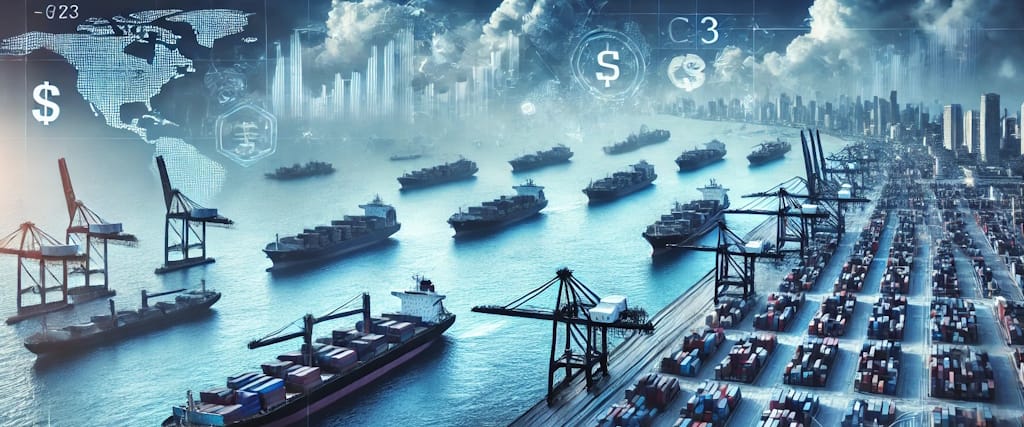The US-China trade war, which began in 2018, reshaped global trade and economies. While tariffs aimed to protect domestic industries, their impact was far-reaching. This article examines the pros and cons of the trade war from US, Chinese, and global perspectives, including its effects on Australia and trade finance.
The US Perspective: Protectionism and Its Costs
Pros:
- Protecting Domestic Industries: Tariffs aimed to revive US manufacturing and reduce reliance on Chinese imports.
- Addressing Unfair Practices: The US sought to counter intellectual property theft and forced technology transfers.
Cons:
- Higher Costs: Tariffs increased prices for consumers and businesses, particularly in industries reliant on Chinese goods.
- Agricultural Losses: US farmers faced billions in losses as China reduced imports of soybeans and other products.
- Economic Uncertainty: The trade war created volatility, deterring investment and slowing economic growth.
The Chinese Perspective: Retaliation and Resilience
Pros:
- Economic Diversification: China accelerated efforts to reduce reliance on US markets, boosting domestic industries and trade with other nations.
- Technological Independence: The trade war spurred investment in homegrown technologies, such as semiconductors and 5G.
Cons:
- Export Decline: Chinese exporters faced higher tariffs, reducing access to US markets.
- Supply Chain Disruptions: Manufacturers struggled with rising costs and delays.
- Slower Growth: The trade war contributed to China’s economic slowdown, particularly in key sectors like manufacturing.
The Global Perspective: Ripple Effects and Adaptation
Pros:
- Opportunities for Other Nations: Countries like Vietnam and India benefited as businesses shifted supply chains away from China.
- Trade Diversification: Nations sought new trading partners, reducing reliance on the US and China.
Cons:
- Disrupted Supply Chains: Global manufacturers faced higher costs and delays, particularly in industries like electronics and automotive.
- Economic Slowdown: The trade war contributed to a global economic slowdown, with the IMF estimating a 0.8% reduction in global GDP by 2020.
Australia’s Role: Caught in the Crossfire
As a major trading partner of both the US and China, Australia faced unique challenges:
Pros:
- Diversified Trade: Australia strengthened ties with other Asian markets, reducing reliance on China.
- Resource Demand: Chinese demand for Australian iron ore and coal remained strong, supporting the economy.
Cons:
- Trade Tensions: Australia faced Chinese tariffs on barley, wine, and other exports, costing billions.
- Economic Uncertainty: The trade war created volatility, impacting Australian businesses and investors.
The Role of Trade Finance
The trade war highlighted the importance of trade finance in navigating global markets. Businesses relied on tools like letters of credit and export financing to manage risks and maintain cash flow. However, the increased complexity of trade also created challenges, such as higher costs and stricter regulations.
For businesses seeking to adapt, Convergent Capital Corp offers tailored trade finance solutions. Whether you’re navigating tariffs or expanding into new markets, we can help you secure the funding needed to thrive.
Conclusion: Trade Finance Lessons from the Trade War
The US-China trade war underscored the risks of protectionism and the importance of global cooperation. While tariffs aimed to protect domestic industries, their broader impact was often harmful. For businesses, the key to success lies in adaptability, diversification, and access to reliable trade finance.
Trade Finance – What’s Next?
If you’re a business navigating the complexities of global trade, Convergent Capital Corp can help you secure the business funding needed to thrive in a competitive market. Contact us today to explore tailored financial solutions for trade.
🔗 Click here to request a callback.
Relevant Articles from our Catalogue
- Unlock Growth with Business Commercial Asset Finance
- Navigating the Growth Curve: Identifying & Aligning Clients with Finance Broker Expertise
- The Silent Storm: How Tariffs Wreck Economic Growth



